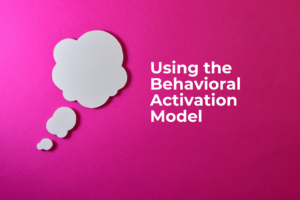Why Nature Might Be the Reset You’re Looking For
Look deep into nature, and then you will understand everything better.
— Albert Einstein
As athletes and coaches, we spent years outdoors: under stadium lights, on courts, fields, and diamonds. We trained our bodies to respond to fitness test days, ice baths, and double-headers.
But when sports ends, many of us retreat indoors. Office jobs. Laptops. Phones.
The irony? We’ve never needed nature more.
Why Nature Matters
Nature isn’t just a “nice to have.” It’s one of the most powerful regulators of our nervous system, our mood, and even our creativity.
Mental Reset: Studies show spending just 20 minutes in nature reduces cortisol, the body’s primary stress hormone.¹
Improved Mood: A walk outdoors can lower anxiety and increase positive emotions more than walking indoors.²
Sharper Focus: Exposure to green spaces has been shown to improve attention and working memory.³
Physical Recovery: Time outdoors improves immune function and reduces inflammation.⁴
When you strip away the science, here’s the simple truth: Nature brings us back to ourselves.
Why Retired Athletes and Coaches Struggle Without It
Athletes thrive in rhythm: school, practice, competition, recovery. Nature has its own rhythm—sunrise and sunset, seasons, weather patterns. When you lose the structure of sport, connecting to nature can give your life a new kind of structure.
But too often, we swap that for the endless scroll of screens, job searches, or overworking. We lose the grounding force that nature provides.
And when that happens, disconnection sets in: physically, emotionally, spiritually.
Walking Back Into Presence
When I lived in California, anytime I felt stressed, I would go to the beach.
Walking along the shore brought me peace when I was overthinking or overanalyzing. The sound of the waves, the sand under my feet, the salt in the air pulled me out of my head and back into the present moment.
Meditation outdoors has the same effect. When I sit outside, my senses are alive. I feel connected to nature, I feel peace, clarity and energizes me for the day.
Now, morning meditation outdoors is my anchor. It sets the tone for my entire day—grounding me in my body, soul, and beyond.
Nature, for me, is more than scenery. It’s medicine.
How to Reconnect: A Playbook
You don’t need to climb Everest to feel the benefits. Here are simple, actionable ways to reconnect with nature:
1. Micro-Doses of Nature
Step outside for 10 minutes without your phone. Notice the air, the sounds, the colors.
*Even short “nature breaks” reduce stress and improve mood.*⁵
2. Move Outdoors
Swap one workout a week from the gym to a park, trail, or open field.
*Outdoor exercise has greater benefits for reducing anxiety and boosting energy than indoor exercise.*⁶
3. Practice Grounding
Take off your shoes and stand barefoot on the grass, dirt, or sand. It may sound silly, but research shows “earthing” can reduce inflammation and improve sleep.⁷
4. Bring Nature to You
Can’t get outside? Add plants to your space. Even looking at greenery lowers blood pressure and heart rate.⁸
5. Combine Nature with Reflection
Journaling, meditating, or breathwork outdoors doubles the effect. Your mind is more open, and your body feels safer in natural settings.
Why This Matters for Your Next Chapter
Life after sports isn’t just about finding the next career. It’s about finding yourself again.
Nature doesn’t care about your résumé, your stats, or your mistakes.
It doesn’t keep score.
It just welcomes you back every single time.
For retired athletes and coaches, nature can be more than a place of rest.
It can be a place of remembering.
Final Thought
If you feel restless, anxious, or lost after leaving sport—start by stepping outside.
Not to escape life.
But to return to it.
Because when you connect to nature, you reconnect to yourself.
Sources
Hunter, M.R., Gillespie, B.W., & Chen, S.Y. (2019). Frontiers in Psychology.
Berman, M.G., Jonides, J., & Kaplan, S. (2008). Psychological Science.
Bratman, G.N., et al. (2015). PNAS.
Li, Q. (2010). Environmental Health and Preventive Medicine.
Nisbet, E.K., & Zelenski, J.M. (2011). Journal of Environmental Psychology.
Thompson Coon, J., et al. (2011). Environmental Science & Technology.
Chevalier, G., et al. (2012). Journal of Environmental and Public Health.
Lohr, V.I., & Pearson-Mims, C.H. (2000). Journal of Environmental Horticulture.
The Power of Connecting with Nature
How the Behavioral Activation Model Can Transform Your Post-Athletic Life
Graduating from college and retiring from sports can feel like stepping into an unknown territory.
Essential Reads for Female Athletes Transitioning to a New Career and Life
As a female athlete who has just graduated from college, retired, or is on the
Finding Your Purpose After Athletics
As a retired or soon-to-retire female athlete, the transition from the world of sports to
At Field Edu, we offer personalized coaching and informative blogs designed specifically for retired female athletes seeking to redefine their identities and embrace new careers with confidence and clarity.





